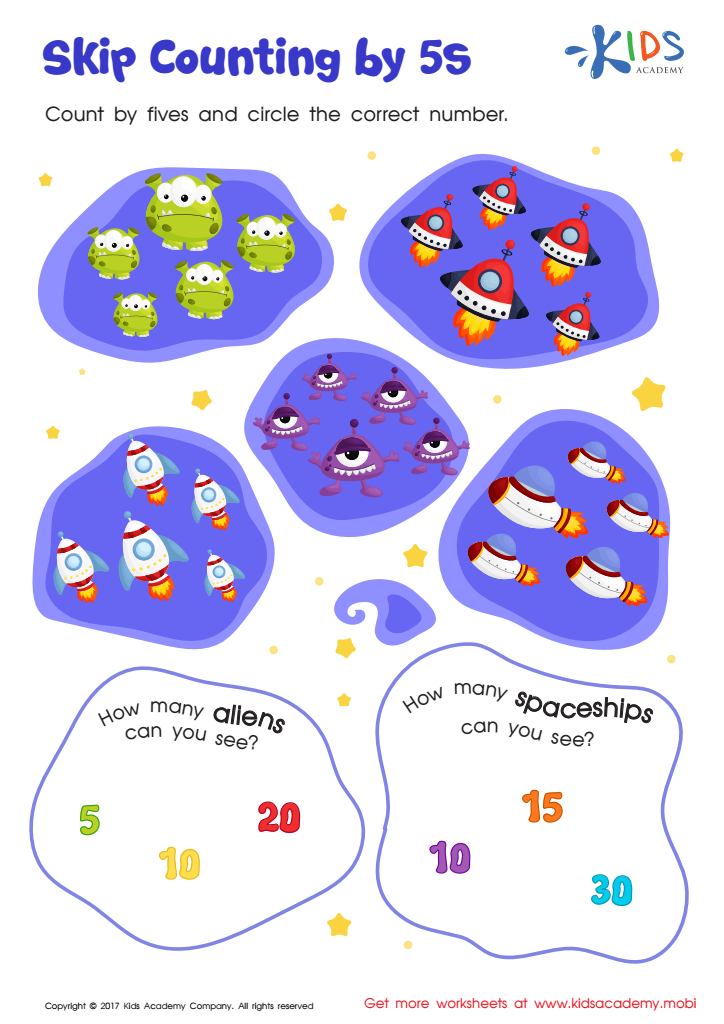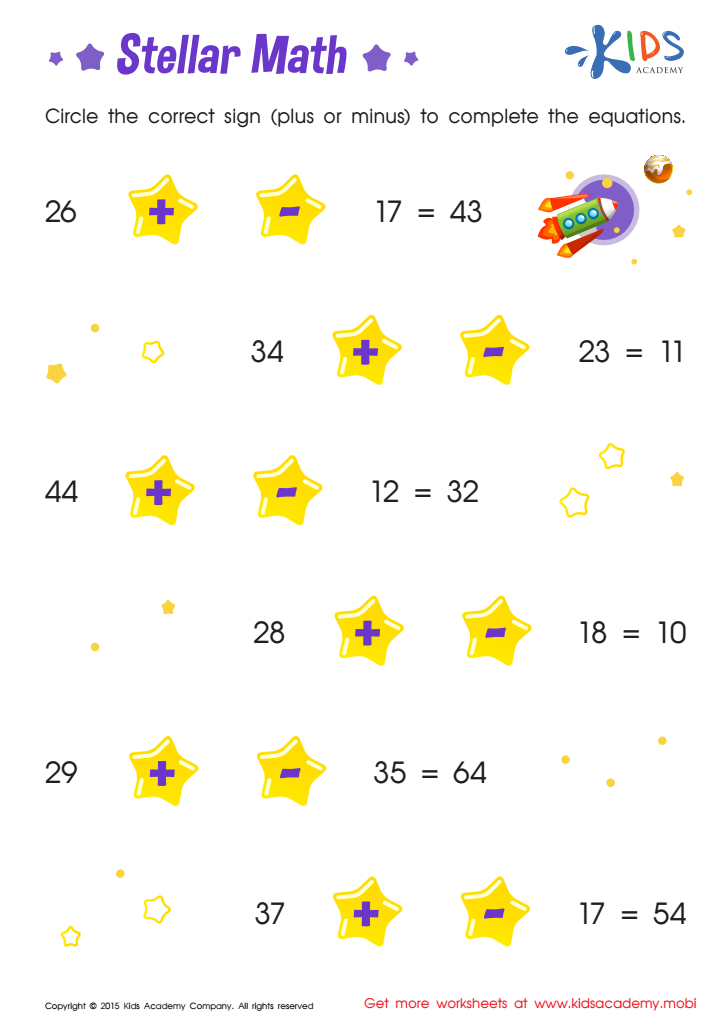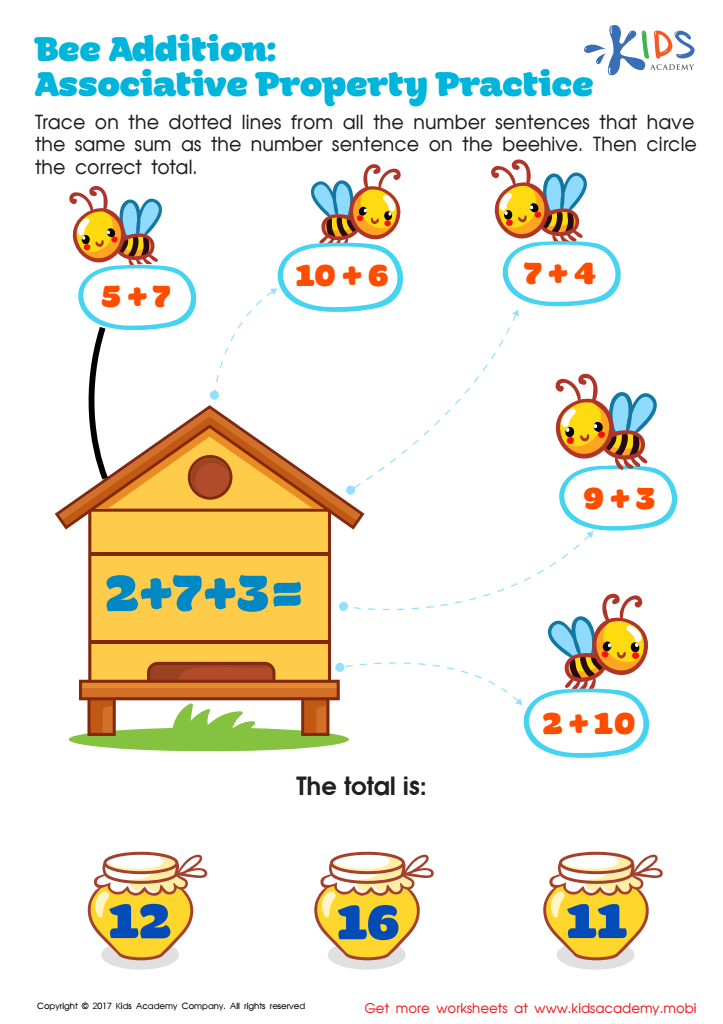Improving mental arithmetic Math Worksheets for Ages 6-7
3 filtered results
-
From - To
Enhance your child's math skills with our "Improving Mental Arithmetic" worksheets designed for ages 6-7. These engaging worksheets are crafted to make learning enjoyable while boosting your child's ability to perform calculations mentally. Through a variety of fun exercises, children will develop confidence in their arithmetic skills, including addition, subtraction, and number recognition. Our resources encourage quick thinking and reinforce essential math concepts in an interactive way. Perfect for both classroom and home practice, these worksheets provide a solid foundation for future math study. Start your child on the path to becoming a math whiz today!


Skip Counting by 5s: Aliens and Spaceships Printable


Stellar Math Substraction Worksheet


Bee Addition: Associative Property Practice Worksheet
Improving mental arithmetic skills in children aged 6-7 is crucial for several reasons. First, this foundational stage of education determines their attitudes towards mathematics, shaping their confidence and motivation in the subject. Engaging in mental math cultivates a love for numbers, making math feel enjoyable rather than intimidating.
Furthermore, mental arithmetic enhances critical thinking and problem-solving abilities, vital skills that extend beyond just math. Children begin to make sense of numerical relationships, vital for more complex topics in later grades, promoting a deeper understanding of mathematical concepts.
Adopting mental computation practices fosters cognitive development, improving memory and concentration. It also encourages self-reliance, as children learn to solve problems independently using their internalized methods rather than always relying on calculators or written computation.
For parents and teachers, prioritizing mental arithmetic in this age group means laying a strong foundation for future learning and helping children become competent mathematicians. The emphasis on mental strategies also aligns with current educational standards that advocate for a more comprehensive approach to learning math, preparing students for real-world applications such as budgeting, time management, and estimation—all essential skills for personal and academic success. Encouraging mental arithmetic provides powerful tools for lifelong learning.
 Assign to My Students
Assign to My Students


















